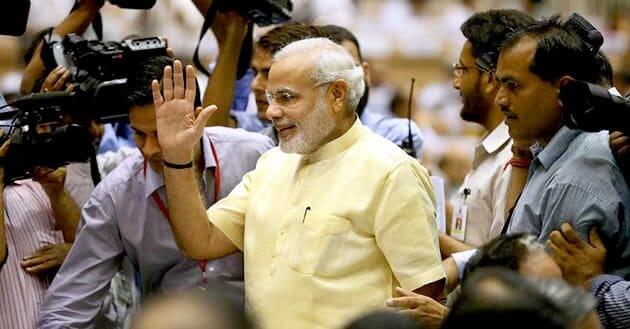The Cambridge Dictionary defines ‘alpha male’ as the most successful and powerful male in a group, or a strong and successful man who likes to be in charge of others. By all accounts, after the overwhelming mandate for Modi and the BJP in India’s recent elections, the country has shown its preference for a strong, decisive alpha male as leader.

It was a textbook victory. The narrative of economic development from the 2014 elections shifted to one of national security and nationalism. Narendra Modi made the election about himself and in fact, his taking up (and after the election victory, letting go) of the Twitter handle Chowkidar (Hindi for ‘watchman’) was a stroke of genius. A chowkidar who would watch over the country and the people, and protect them from any attack on their person or their religion, seems to have played out well. Wary and weary from the actual incursions on its freedom and borders, the nation needed a strong decisive leader to step up; a card well played by the party machine.
That there was no effective opposition also worked well in their favour. The Congress party has become a fatigued institution, showing its age of nearly 140 years. It has failed to reinvent itself, stuck in the fifth generation of the Nehru dynasty. Among the 84 million first-time voters this election, the 15 million between the ages of 18 and 19 held no ties to the Nehru-Gandhi family.
India’s youngest voters are bubbling over with drive and ambition: they want to progress from being a Zomato delivery person to owning a Subway or Domino franchise. Resting on past laurels or old glory is simply not their style – the famous surname in fact antagonises them.

Equally, the BJP was able to cut through the regionalism and casteism of politics. It stood as one party and this election showed, possibly, the end of patchwork politics which has dominated India over the last 20-odd years. While on one hand, BJP consolidated its position and grew its vote bank, the Congress’ paltry gains came at the expense of other regional parties rather than winning from the BJP. Analysts have indicated that in the next election, Congress will need a swing of at least 15% to get it to 125 seats. In a parliament where the first party to take 271 seats wins the elections, it’s a grim future indeed for the Congress.

So, with this mandate, the expectations from the BJP and from Modi are huge.
According to the World Bank, India’s GDP in 2015 was 8.2% and a recent State Bank of India report has growth for the 2017-18 fiscal year at just below 7%. Reserve Bank of India has forecast inflation at 4.5-4.9%. The actual growth is then ranging around 2.5-3%. This must increase, to allow people who voted for the BJP to feel economically secure. Government-led policies to accelerate growth will need to be implemented. Internationally, India will need to position itself in a more strategic position as the trade wars with the US and China continue under the foreign policy effect of the Trump administration. Modi will need to address issues related to the minorities in India and their position in the fabric of the 5,000-year-old society. Social cohesion and a common purpose of advancing India and ensuring everyone moves forward, will be a challenge for a country of 1.3 billion with over 9 different religious beliefs – but perhaps easy for the alpha male as elected leader.

Modi's win is a win for the strong, decisive, alpha male

Reading Time: 3 minutes



